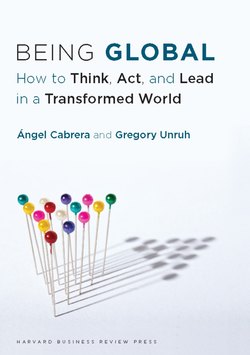Читать книгу Being Global - Gregory Unruh - Страница 5
На сайте Литреса книга снята с продажи.
ОглавлениеINTRODUCTION
Being Global Is Not an Option. It's an Imperative
The headlines today, October 11, 2011, tell a global story. U.S. textile makers are fighting the passage of a free trade agreement between the United States and South Korea because the American manufacturers say Korean technology will put them out of business. Russia has announced its intention to limit grain exports, causing world wheat prices to surge. In Australia, a cap-and-trade bill aimed at putting a price on carbon emissions has just jumped a major hurdle in that country's parliament, sending reverberations throughout the developed world. And Greece, of course, remains a persistent headline winner, as Europe's nations again try to work out a plan so that Greece keeps paying and the euro will remain solvent.
The global connections these news stories highlight are not, in and of themselves, new. Global trade has been around, after all, since the sixteenth century (and broad cross-border trade for thousands of years before that). Yet, look to the details and it is clear how much more connected, interdependent, and multidirectional our global world is today than at any time in the past.
Twenty years ago, discussion of a free trade agreement between the United States and a middle-income partner was dominated by debate over which U.S. technologies or industries would most benefit. Today, U.S. manufacturers fear the risk that South Korean technology will pose to the U.S. equivalent. Twenty years ago, it would have taken months or longer for the policy of an agricultural exporter to affect prices at the supermarket. Today, there is a direct line between Russia's announcement and the price of a baguette in Toulouse or, more poignantly, the price the UN World Food Programme pays for supplies to feed drought-affected Somalis. Twenty years ago, the global discussion about energy pretty much started and finished with supply and price. Today, a national energy policy decision by a remote country without significant petroleum reserves affects discussions taking place tens of thousands of miles away. Twenty years ago, the insolvency of a relatively small European country would have made little difference beyond that country's borders and those of its immediate neighbors. Today, it is putting a major world currency, and with it the entire world economy, at risk.
The world economy of today barely resembles that of twenty years ago. A handful of wealthy countries mostly trading with each other or importing raw commodities from poorer ones no longer dominate global trade. Global growth is not solely determined by the innovations or industriousness of developed nations, just like global health cannot be affected solely by the actions of a few. The world today is truly global: inclusive, multidirectional, interlinked, and hugely complex.
